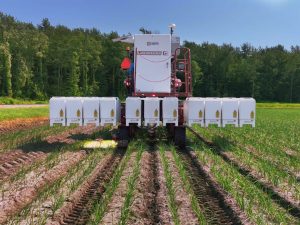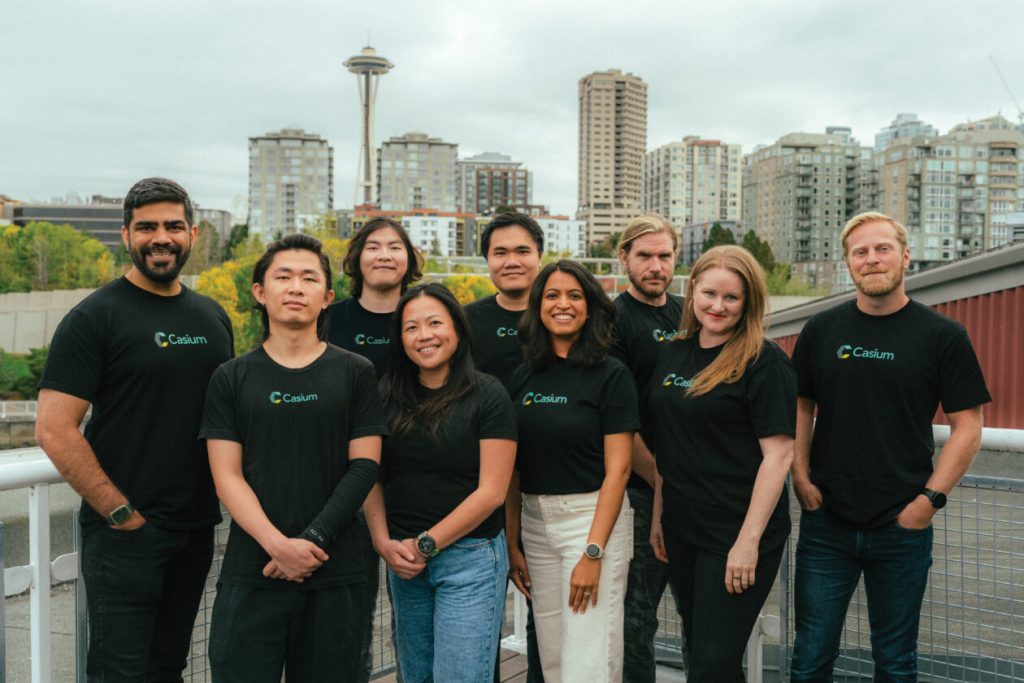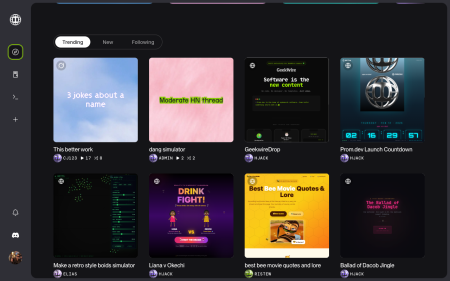Streamlining the Immigration Dream: Seattle’s Casium Raises $5M to Transform Work Visa Processing
In the heart of Seattle’s thriving tech landscape, a personal frustration has transformed into a promising solution for thousands of skilled workers navigating America’s complex immigration system. Casium, a startup using artificial intelligence to revolutionize the work visa application process, announced a $5 million seed funding round led by Maverick Ventures. The investment, which included participation from Seattle’s AI2 Incubator, GTMfund, Success Venture Partners, and Jake Heller of Casetext, marks a significant milestone for a company born from its founder’s own immigration struggles. For Priyanka Kulkarni, Casium’s founder and CEO, the journey began with her personal experience applying for an EB-1 visa – a process she found “confusing, opaque, and full of endless back and forth.” As a former Microsoft scientist and entrepreneur-in-residence at AI2 Incubator, Kulkarni possessed the technical expertise and vision to transform this frustration into innovation. “What began as a personal pain point became a mission to build something better,” Kulkarni explained in a recent LinkedIn post. This mission has now evolved into a comprehensive platform helping global talent and their employers navigate the immigration process with unprecedented efficiency.
The American dream has long attracted the world’s brightest minds, but the path to legal work status remains notoriously complicated. Work visa applications require applicants and their employers to build compelling cases for the U.S. government, documenting education, work experience, and specialized skills. This process traditionally takes months of paperwork, documentation gathering, and legal consultation – creating significant barriers for both talented individuals and the companies eager to hire them. Casium’s innovative approach uses advanced algorithms to first assess the optimal immigration pathway for each applicant, whether that’s a temporary work visa or permanent residency. The platform then leverages AI to autonomously collect information and prepare application documents, while partnering with immigration attorneys who provide expert guidance throughout the process. This combination of technology and human expertise aims to compress the typical months-long timeline down to days, addressing a critical pain point in the global talent marketplace.
Since spinning out of AI2 Incubator in April 2024, Casium has quickly demonstrated its value proposition. Despite being a young company with just nine employees, it has already established partnerships with employers ranging from early-stage startups to Series F companies. The platform has assisted hundreds of candidates through visa assessments, compliance reviews, and actual filings, maintaining what Kulkarni describes as “an exceptionally high approval rate.” Casium’s business model offers flexibility to both individuals and companies, providing initial assessments for free and charging flat fees for filings based on visa type and case complexity. Looking ahead, the company is developing a subscription model to give employers more comprehensive ongoing support. For Kulkarni, each successful case represents more than just a business milestone. “Every filing and every approval is a reminder of why this work matters,” she noted while acknowledging Casium’s growing customer base.
The timing of Casium’s emergence couldn’t be more relevant, as immigration policy continues to occupy center stage in American politics. Last month, President Donald Trump issued an executive order outlining a substantial $100,000 fee for H-1B visas – the category that allows companies to hire highly skilled foreign workers in specialized fields like software engineering and data science. This policy shift highlights the high-stakes nature of the immigration process and underscores the potential value of Casium’s streamlined approach. The scale of the challenge is enormous: more than 442,000 workers annually compete for just 85,000 H-1B visa slots, creating a bottleneck that affects both individual careers and business growth. With each application representing a life-changing opportunity, the inefficiencies of the traditional process carry real human and economic costs that Casium aims to reduce.
Casium enters a growing field of companies focused on improving legal immigration experiences. Seattle-based Boundless Immigration, which spun out of Pioneer Square Labs in 2017, has already established itself as a major player in this space by helping immigrants connect with lawyers and file applications for spousal visas and U.S. citizenship. Having raised over $43 million in funding, Boundless represents one of the largest consumer-focused family immigration companies in the market. However, Casium’s specific focus on work visas and its AI-powered approach create a distinctive positioning in this competitive landscape. By targeting the intersection of employment, immigration, and technology, Kulkarni’s company addresses a specific gap that affects both individual careers and corporate talent strategies.
The story of Casium reflects broader themes in today’s innovation economy: how personal challenges can inspire technological solutions, how artificial intelligence can transform traditionally manual processes, and how startups can address complex social and policy challenges. For the hundreds of thousands of talented individuals seeking to contribute their skills to the American workforce each year, the visa application process represents more than just paperwork – it’s the gateway to career opportunities, financial stability, and in many cases, a new home. By combining technological innovation with human expertise, Casium aims to make this gateway more accessible and navigable. As the company deploys its new funding toward growth and continued product development, its success will be measured not just in business metrics, but in the number of talented individuals who can more efficiently pursue their professional dreams across borders. In Kulkarni’s vision, technology doesn’t replace the human elements of immigration – it enhances them, creating transparency, efficiency, and ultimately, more opportunity.















